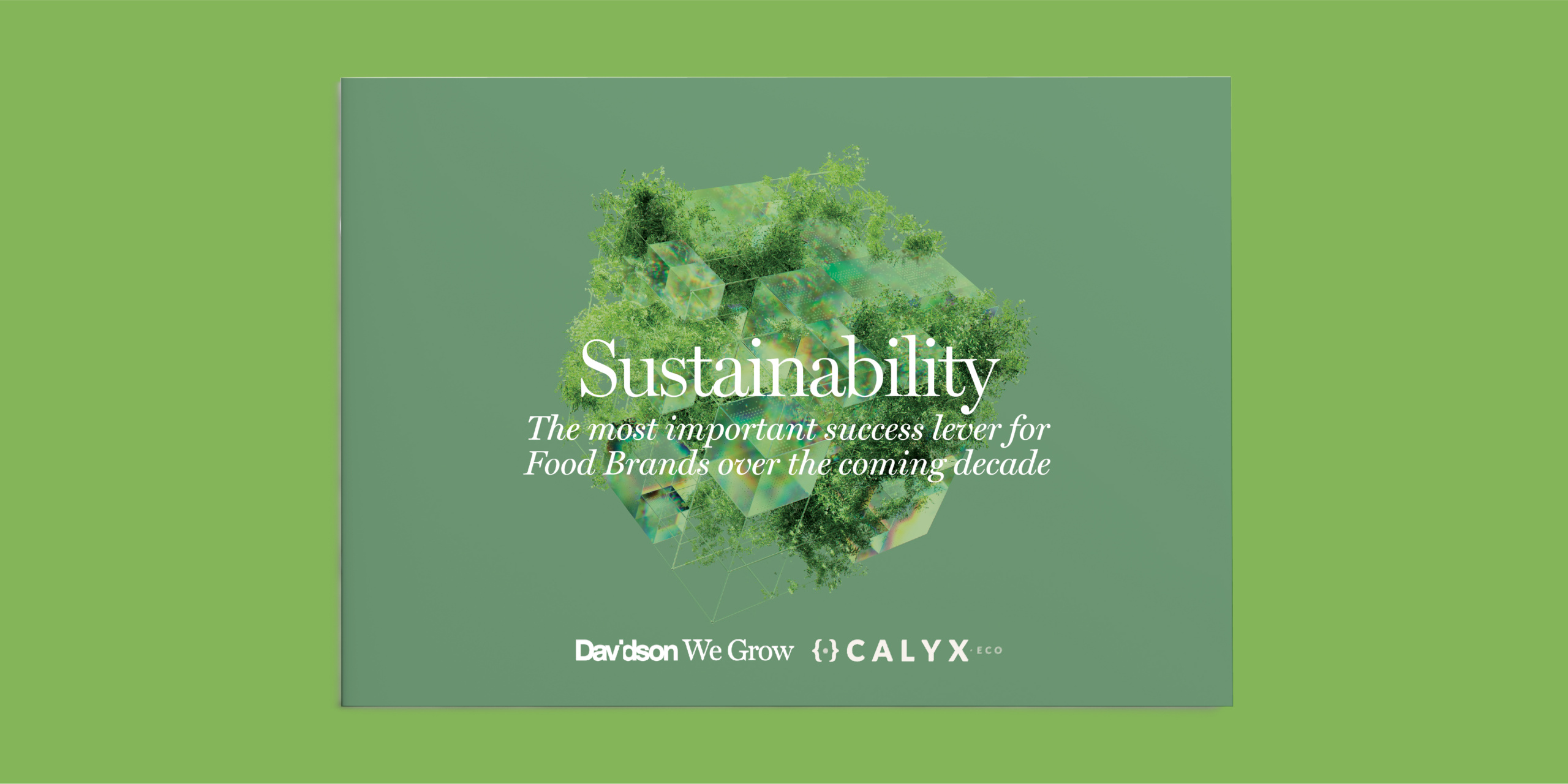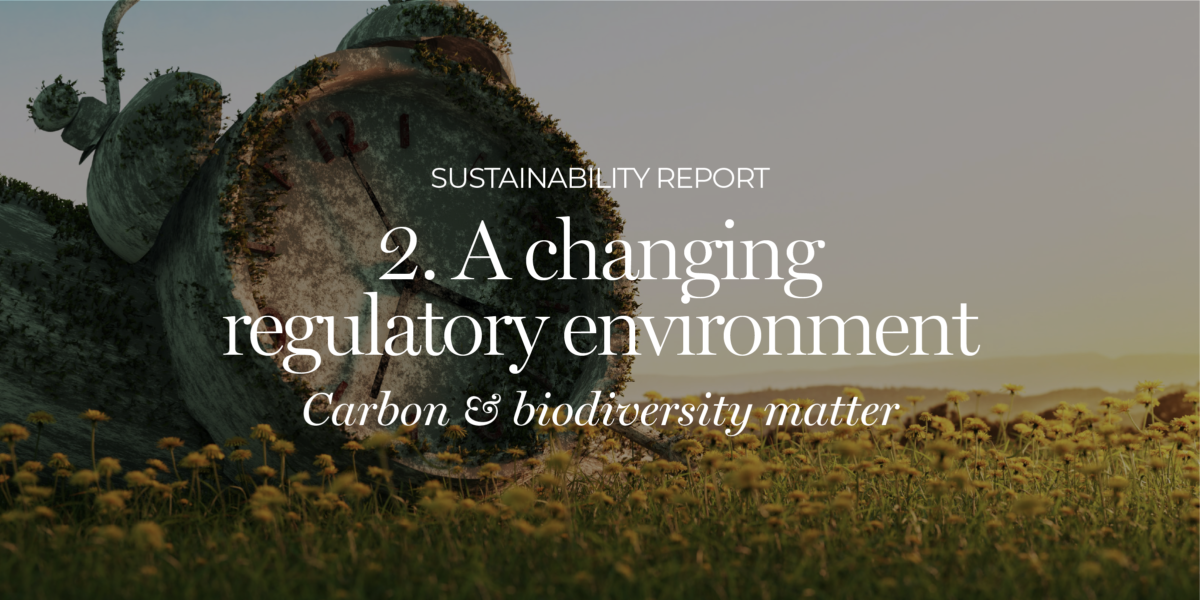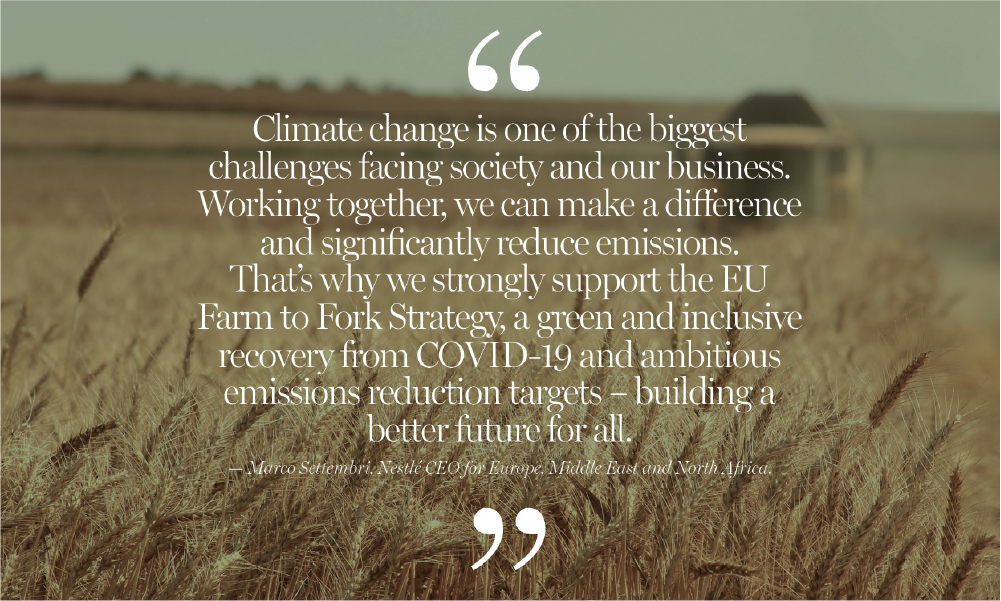This shifting regulatory landscape is expected to continue for the short term. In the absence of clear regulation and guidance it is science that companies and governments are turning to, to deliver on sustainability. This backdrop is encouraging a return to scientifically robust methodologies to deliver data based insights as brands drive deeper into their supply chains to truly understand their impact and communicate sustainability.
The Australian Competition and Consumer Commission (ACCC) reported it was concerned about 57% of businesses making green claims and is delivering a clear message that broad sweeping statements are no longer okay and environmental claims need to be backed by data.
Below is a list of the major regulations and guidelines across global markets to keep an eye on over the coming years:
- Underpinning a continental level transforming across Europe is the European Commission’s (EU) Green Deal. The Green Deal adopts a set of proposals to make the EU’s policies fit for reducing net greenhouse gas emissions by at least 55% by 2030, compared to 1990 levels and becoming the first climate neutral continent by 2050. The Farm to Fork Strategy is the heart of the European Green Deal, aiming to make food systems fair, healthy and environmentally-friendly.
- To curb the EU’s contribution to trade-related global deforestation by keeping products linked to illegal production and deforestation out of the EU market, in December last year the EU adopted a new anti deforestation regulation. This is significant for the food industry, one of the largest drivers of deforestation globally. Traders and operators placing products in the EU market including soy, palm oil, cocoa, beef, coffee or timber will need to comply with traceability standards and provide proof of no deforestation.
- In the US market the Inflation Reduction Act, Securities and Exchange Commission’s proposed rules to enhance and standardize ClimateRelated Disclosure for Investors and the Bipartisan Infrastructure Law addressing deforestation are the leading regulations in this market governing a response to climate change.
- Leading regulation and policy in the Asian market is coming from Singapore with its 2030 Green Plan.
Standards & Best Practice
The opportunity to maximize growth and mitigate risk by addressing sustainability means that waiting for government regulation and unified global standards in an evolving regulatory environment is in itself a significant risk to commercial growth.
To understand the extent of what’s possible, move the needle from the ground up and provide defense against greenwashing, industry leaders are turning to global best practice frameworks for delivering sustainability initiatives.
Food and agriculture sustainability frameworks are guidelines and systems designed to help companies in the sector improve their sustainability performance. These frameworks are often developed by multi-stakeholder groups, including companies, NGOs, and academics, to ensure that they reflect the latest scientific research and best practices in sustainability and provide a set of principles, metrics and tools that companies can use to measure and improve their sustainability performance.
Key Frameworks and Standards to be inspired by and adhere to are listed below:
- Food and Agriculture Organization of the United Nations (FAO) Sustainability Framework:The FAO Sustainability Framework provides guidance for sustainable agriculture and food systems, focusing on issues such as climate change, biodiversity, and food security. This paper takes a systems approach to addressing our food system and has been developed by the UN.
- Science Based Targets Initiative: Science-based targets provide companies with a clearly-defined path to reduce emissions in line with the Paris Agreement goals. More than 4,000 businesses around the world are already working with the Science Based Targets initiative (SBTi). The STBi has set sector specific methods for emissions reduction, notably the Forest, Land and Agriculture (FLAG) guidance is relevant for the food industry and will materially change the way we measure and report on carbon to include historic land use change.
- The Sustainability Consortium (TSC): TSC is a global organization that works with companies, NGOs, and academics to promote sustainability in consumer products, including food and agriculture products. Its framework covers a range of sustainability issues, including greenhouse gas emissions, water use, and social responsibility.
- Global Reporting Initiative (GRI) Standards: The GRI Standards provide a comprehensive framework for sustainability reporting, including reporting on food sustainability. The standards cover a range of topics, including greenhouse gas emissions, water use, biodiversity, and labor practices.
- Ellen MacArthur Foundation Circular Economy Framework: The Ellen MacArthur Foundation’s circular economy framework provides a comprehensive approach to sustainability, including the food system. It focuses on reducing waste, promoting regenerative agriculture, and designing out harmful materials and practices. The foundation’s work is a great source of inspiration to understand what’s possible.
SUSTAINABILITY REPORT








